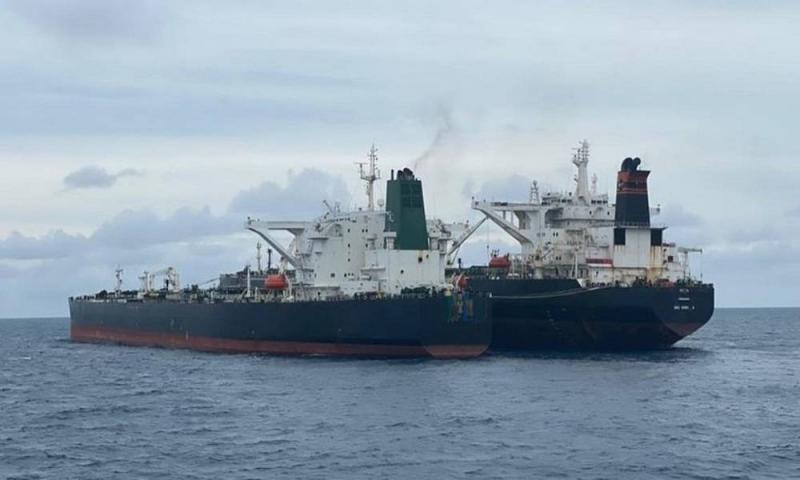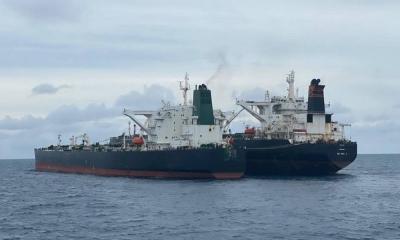The Indonesian Coast Guard announced on Tuesday that it had detained a giant tanker flying the Iranian flag on suspicion of illegally transporting oil. The Indonesian Maritime Security Agency indicated that the large crude oil tanker "MT Arman 114" was carrying 272,569 tons of light crude oil, valued at approximately 4.6 trillion rupiah (3.4 million dollars), and is suspected of transferring oil to another vessel without permission.
The agency noted that the Iranian-flagged tanker is also suspected of violating other maritime regulations by manipulating its automatic identification system. The agency's chief, Ann Kurnia, told reporters that the ship was detained after being spotted near the northern Natuna Sea in Indonesia while transferring oil to the vessel "MT S Tenous," flying the Cameroon flag on Friday.
He added that the two giant tankers attempted to flee, and authorities decided to focus their pursuit on "MT Arman," with assistance from Malaysian authorities as the vessel had entered Malaysian waters. It was noted that the ship had also discharged oil into the ocean, violating Indonesian environmental laws.
He confirmed that "MT Arman" had manipulated its identification system to show its location in the Red Sea, while it was actually present in the area. "So it seems they indeed have malicious intent," he stated. The agency also reported that the authorities detained the Egyptian captain of the tanker, its crew of 28, and three passengers who were family members of a security officer on board.
Earlier this year, a Reuters analysis mentioned the existence of a "shadow fleet" of tankers carrying oil from Iran, Russia, and Venezuela, which are under sanctions, through the Singapore Strait to avoid detection. In 2021, Indonesia detained an Iranian-flagged ship and another flying the Panama flag on similar charges.
Separate data from "Equasis" and MarineTraffic indicated that one of the previous names for Arman 114 was Grace 1, which was seized by British Royal Navy special forces in 2019 on suspicion of attempting to transport oil to Syria in violation of EU sanctions. It was released the following month after a diplomatic standoff with the West.
A Reuters analysis earlier this year indicated an increasing risk of oil leaks and accidents, with hundreds of additional ships, some without insurance coverage, joining this covert parallel trade in recent years.




